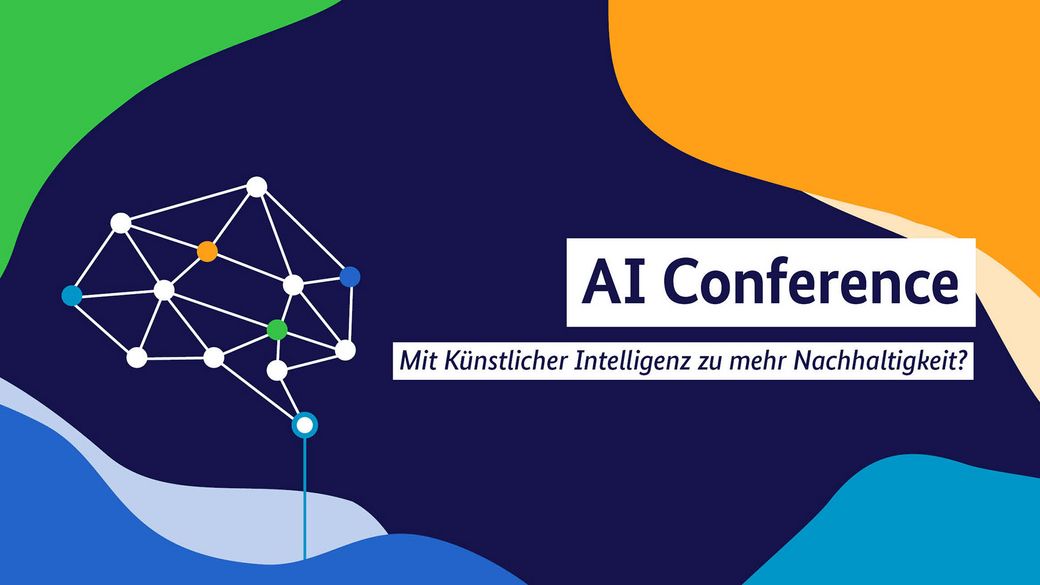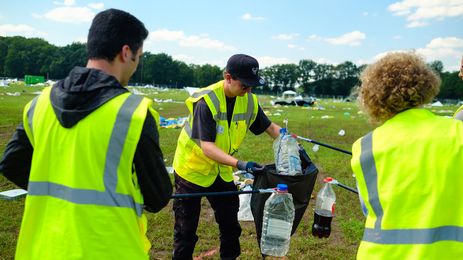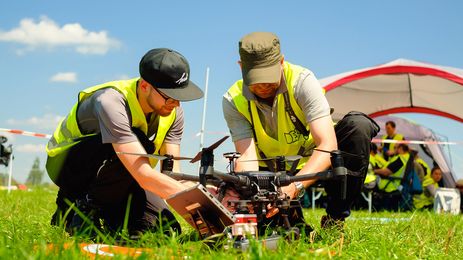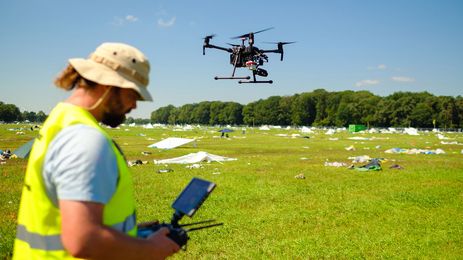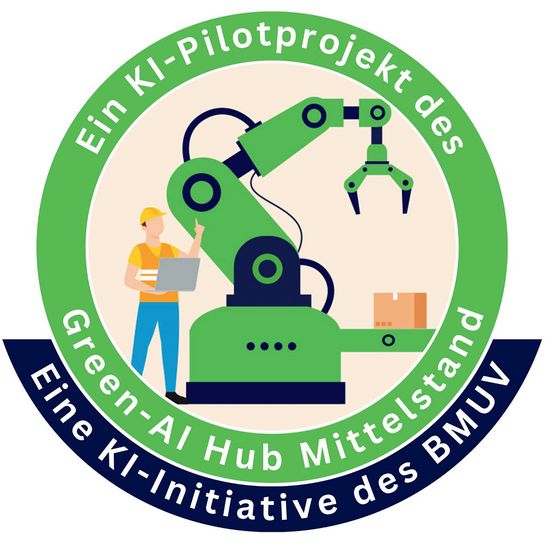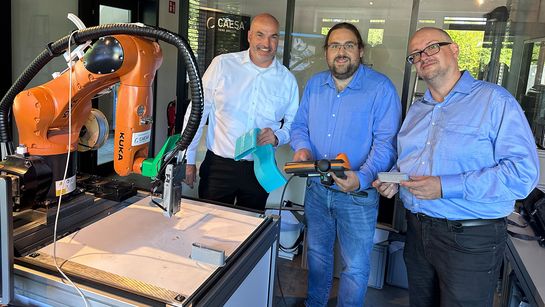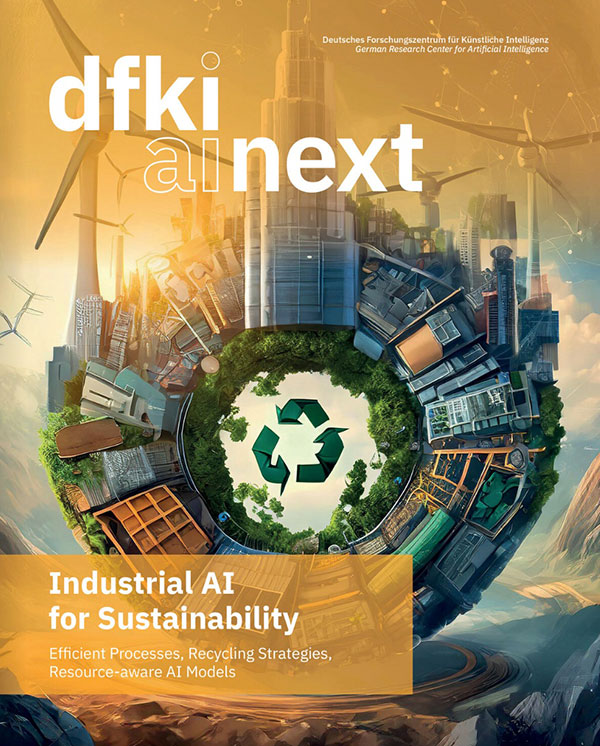
DFKI at the AI Conference
How does Green AI work for environmental and climate protection? This question is the focus of the ‘AI Conference: Mit Künstlicher Intelligenz zu mehr Nachhaltigkeit?’ (AI Conference: Using Artificial Intelligence for More Sustainability?), which is being organised by the Federal Ministry for the Environment (BMUV) and will be opened by Federal Environment Minister Steffi Lemke in Berlin on 7 November. In addition to keynotes and workshops, the extensive programme also includes presentations of current AI projects and initiatives in which DFKI is involved. These include the AI lighthouse project PlasticObs+ and the AI initiative Green-AI Hub Mittelstand.
KI-Leuchtturmprojekt PlasticObs+
In the PlasticObs+ project, a consortium led by DFKI is developing a new method for airborne monitoring of waste in larger, contiguous marine areas. As a further development of previous methods, which enable the selective detection of plastic in water, this method aims to provide continuous monitoring that covers as much of the area as possible.
At the AI Conference, representatives of all project partners will present PlasticObs+ as a showcase. Among other things, they will demonstrate how plastic patches can be detected in the future using an aircraft-based sensor system. In addition, the training, use and added value of artificial intelligence in the detection of waste in the oceans will be illustrated.
‘Artificial intelligence helps us to identify not only the amount of plastic waste, but also the type of plastic waste from a great height. Our goal is to discover and identify waste hotspots during routine overflights. We want to provide decision-makers in politics and business with a scientific database that they can use to take action against the introduction of waste into our seas.’
PlasticObs+ is a BMUV-funded AI lighthouse project for the environment, climate, nature and resources. The responsible project management organisation of the funding initiative is Zukunft-Umwelt-Gesellschaft (ZUG). PlasticObs+ is led by DFKI and implemented together with Jade University of Applied Sciences, Optimare Systems and everwave.
Green-AI Hub Mittelstand
At the AI Conference, the AI pilot operation SWMS will be presented by the managing director, Lars Windels, for whom DFKI has developed an AI solution as part of the Green-AI Hub Mittelstand.
The Green-AI Hub Mittelstand is an AI initiative of the Federal Ministry for the Environment, Nature Conservation and Nuclear Safety, which is coordinated by the Zukunft-Umwelt-Gesellschaft (ZUG) gGmbH. The spokesperson for the Green-AI Hub Mittelstand is Professor Dr. Oliver Thomas Professor Dr. Oliver Thomas, head ot the research department Smart Enterprise Engineering at DFKI Niedersachsen.
The DFKI is responsible for the operation of the Green-AI Hub Mittelstand. In particular, DFKI experts support the hub in the context of AI pilot projects and develop practical AI solutions.
Pilot project: AI solution for 3D printing
Among the pilot companies is, alongside numerous other SMEs, the Oldenburg-based company SWMS, a technology company that offers software solutions for 3D printing. As part of the Green AI Hub for SMEs, DFKI has developed an AI solution for SWMS that detects errors in 3D printing at an early stage and helps to avoid them in the future. This saves material and energy.
Green AI as a driver of innovation
Dr Aljoscha Burchardt will contribute to DFKI by participating in the panel discussion 'Green AI as an engine of innovation: How should business approach the dual transition?' In this panel discussion, followed by a Q&A session, several experts will discuss the current framework conditions for the implementation of sustainable AI in the economy - with a view to the upcoming twin transition of the German economy. Dr Aljoscha Burchardt is a Principal researcher, research fellow and deputy site spokesperson at the DFKI in Berlin. He is an expert in language technology and artificial intelligence.
